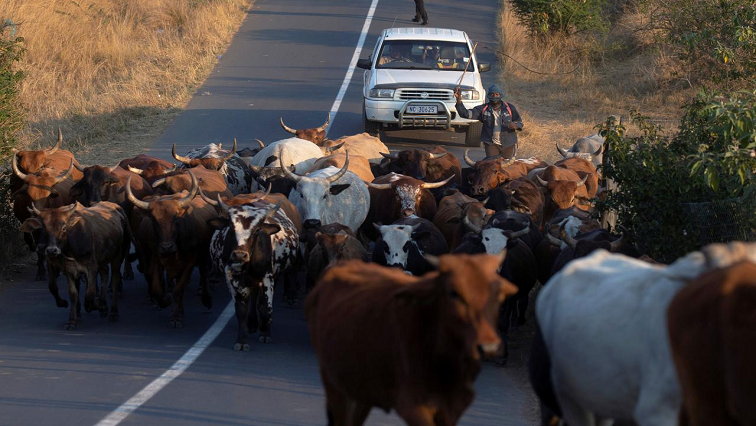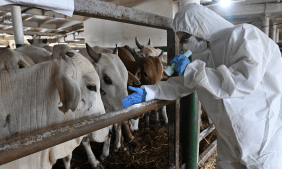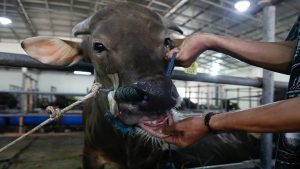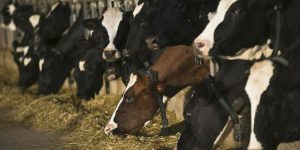The ban on the auction of livestock due to the outbreak of foot and mouth disease is having a negative impact on the economy. The outbreak was reported in the Molemole Municipal area, north of Polokwane in Limpopo, in late 2019.
This has resulted in the banning of livestock auctions in Limpopo, Gauteng, Mpumalanga and the North West. 700 000 jobs are also at stake. The government is also losing millions in tax collection.
The South African Federation for Livestock Auctioneers says the outbreak will be difficult to contain as there is poor maintenance of the fences and weak policing in the affected areas. The border fence between South Africa and Zimbabwe is porous and non-existent in some places. The fence between the Kruger National Park and neighbouring communities is also porous.
The spokesperson for livestock auctioneers, Paul van Vuuren, says they want buffer zones to be strengthened.
“The foot and mouth area, the red area or the yellow or blue area whatever they call it; is not at the moment effective. Administrative functions and policing functions, those areas, have gone to nothing. At the moment, there are about 800 and 1200 cattle of Zimbabwe in South Africa at Mapungubwe and they can’t go back. I think the whole epidemic area has to be privatised.”
Van Vuuren says hundreds of thousands of jobs are at stake. He also says farmers are losing about R3 million a month.
“We’ve got a huge workforce of over 700 000 people and it can cost us over R3 million per month; we’re already over R9 million in the red. I think the government, the ministry, was given the wrong advice. The government is losing millions of rands because of the ban. We take every month R3-R5 million in VAT; at the moment, we are paying nothing and the people are suffering.”
Madambi Muvhulawa from the National Emerging Red Meat Producers Organisation says farmers are stuck with livestock which cannot be absorbed by the local market.
“When the auctions were suspended, it affected farmers so much; especially it was just before the end of the year when people were in dire need of cash. It is really a disaster because people are having animals but they cannot sell them through the auctions and those who are consuming the meat locally, it is not enough to absorb the production of the farmers because farmers are producing commercially. It is affecting farmers terribly.”
Agriculture Department spokesperson Reggie Ngcobo says the ban on auctions of livestock will be lifted once the outbreak is curbed.
“We understand the frustration of our auctioneers as well as our farmers, but we feel that the ban is indeed working for the fact that we managed to contain this disease in the province of Limpopo under Molemole Municipality. The people will have different ideas because it affects them directly, but we are working through the task team with all the role players to ensure that the ban is lifted so that our people can be able to go on with their normal auction.”
The Agriculture Ministry is encouraging auctioneers to conduct online auctions. The Federation of Livestock Auctioneers has threatened to report the country to the international body, World Organisation for Animal Health, if the ban on auctions is not lifted soon.






